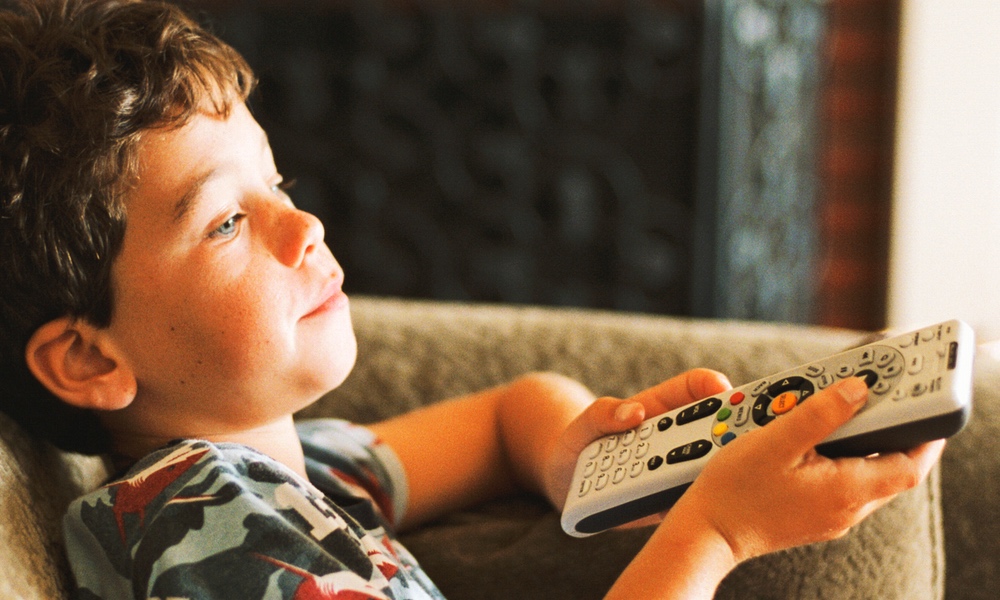Children who watch too much TV during their preschool years are vulnerable to bullying when they reach middle school. Not only does excessive screen time rob them of the chance to learn social skills during their early years, according to a recent Canadian study, children who are shy or socially awkward may retreat to television rather than spending time with others.
There are 24 hours in a day. With half of these devoted to addressing the basic needs of young children, the researchers contend that most of the rest should be reserved for experiences and interactions that offer opportunities for social and emotional growth.
The problem for kids is that media hinders development. Excessive TV viewing competes with much needed parental and social interaction. As a result, an “experience deficit” develops and children miss out on critical experiential leaning opportunities While they are indulging in passive screen viewing, they are not engaging in interactive play, sharing and negotiating with others, and observing role models in action in real life.
Alone, they miss out on feedback from their peers and parents. They don't learn how to read facial expressions, body language, and tones of voice, so their ability to pick up the communication cues of other children becomes stunted.There appeared to be a dose-response effect — the more TV during preschool, the more victimization in middle school.
They have less of a chance to exercise their own social skills, as well as regulate and assert themselves. They also have fewer chances to develop initiative.
Over the years bullying can lead to mental and physical problems in adulthood. Depression, underachievement, and low self-esteem have all been linked to bullying.The problem for kids is that excessive TV viewing competes with much needed parental and social interaction.
These socially-awkward, bullied children often become bullying adults. It is a vicious cycle in need of intervention. One intervention is early prevention.
The study followed almost 2000 children, about half girls and half boys, over several years. The children's mothers were asked how much time their children spent per day watching TV, videotapes, and DVDs in a typical week when they were two-year-olds.
Parents were also asked about other characteristics of the children and their families that might impact their vulnerability to bullying later. These included cognitive skills, behavioral issues, family constellation and other demographics. In sixth grade, the children were questioned about their experiences of victimization that had occurred over the preceding year.Decreasing screen time in the early years gives kids a more useful range of social skills to read and handle situations when they are middle schoolers.
The degree of victimization at age 12 was compared to the history of TV viewing hours at age two. The data revealed that at 29 months, the children in the study group watched an average of 8.82 hours of television per week or about 1.26 hours per day. This falls within the recommended range. However, as daily TV viewing time increased, among individual children, so did the likelihood the child would be bullied. There appeared to be a dose-response effect — the more TV during preschool, the more victimization in middle school.
If family interaction is the primary way that children learn socialization skills, then children need enough exposure to their three-dimensional family members to develop appropriately. When TV replaces family interaction, developmental lags appear, the researchers conclude. These lags create the potential for victimization. Decreasing screen time in the early years gives kids a more useful range of social skills to read and handle situations when they are middle schoolers.
The American Academy of Pediatrics recommends a maximum of 1-2 hours total screen time for children ages 2 and older. Research has shown that many preschoolers exceed this number. Other research has shown that the amount of TV that preschoolers watch predicts the amount of TV they will watch at ages 6 and 10 years. The TV habit can be difficult to break.
Screen time has been linked to a variety of ills from behavior problems to physical problems such as overweight and obesity. And now it appears to contribute to the risk of being bullied.
It can be difficult to hold the line on screen time, but if families develop other outlets — gardening, volunteering, sports, cooking — to engage children, it's much easier. Parents may want to discuss effective methods of limiting screen time with their family's health care providers.





